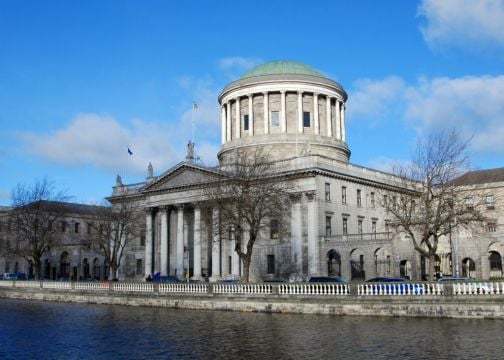A businessman has claimed before the High Court that entities including two firms he had previously been a director of have wrongfully retained monies paid out by insurance company over fire damage to his former family home.
The claim has been made by Stephen Mahon, who has brought proceedings over an alleged failure by the development firms he had worked for to honour a settlement agreement they entered into in respect of a property at Trinity Haus, Quarry Lands, Dunboyne, Co Meath.
On Tuesday Clonsilla-based Mr Mahon secured a temporary High Court injunction restraining several related parties he has sued, from removing restraining or moving money outside the jurisdiction insurance proceeds allegedly paid to them following a fire at that property.
He claims he should be paid the insurance monies, as well as the majority of the proceeds of the sale of the property which purportedly closed last March and fears the firms may use those monies for their own purposes.
The action by Mr Mahon, represented in the proceedings by solicitor Graham Kenny of Eversheds Sutherland LLP, is against allegedly related parties Yeronga Limited, Trinity Homes Limited, Project Trinity Homes Ltd, Project Trinity Homes 2 Ltd, Mr Pierre Marc Lecompte, and Corey Hill Development Ltd.
The injunction was granted, on an ex-parte basis, by Mr Justice Paul Burns during Tuesday's vacation sitting of the High Court.
The judge adjourned the matter for a week.
In his action Mr Mahon says he was a director of Yeronga and Trinity Homes Ltd, a development company which had built housing for several local authorities.
In a sworn statement he said the Dunboyne property was owned by Yeronga, but was his family home, where he had lived with his family.
In 2021 the companies got into financial difficulties largely caused by the Covid-19 outbreak.
Examinership process
The firms entered into the examinership process, which resulted in their survival.
Mr Mahon said that as part of the examinership arrangement the firm's secured creditors became their exclusive shareholders, and that his shareholding, job and directorships with the firms ended.
Issues remained over the property but says that the parties entered into an agreement.
He claims that it was agreed that the property would be sold at a price no less than €500,000.
The settlement agreement also stipulated that Yeronga would retain €200,000 of the net sales price, while Mr Mahon would retain the balance.
The house, he claims, was sold for €810,000 in December 2022.
He claims that shortly before Christmas, while helping persons he was informed had bought the house to move in, the upstairs of the property was significantly damaged by a fire.
He claims that last March he was informed that the sale of the property had completed, and that there had been an agreement between the purchaser and the insurance company that facilitated the sale.
He claims that he "is in the dark" exactly how the sale completed.
He claims that the companies' solicitors did not inform him of the sale or the price but says that the Property Price Index has listed the sale as being €500,000.
Real estate agent
He said that the real estate agent that handled the sale was paid a commission based on a sale price of €810,000.
He said that following correspondence with the defendant company's solicitor's he claims that it has transpired that the firms received both the proceeds of the sale, and the insurance proceeds.
He claims that the companies should not be allowed retain the insurance moneys as it amounts to an unjust enrichment and the payment should be held in trust for him.
He claims the companies have claimed in correspondence that Yeronga had paid the insurance on the property and have alleged that Mr Mahon had breached the settlement agreement.
He rejects all those allegations.
He fears that the funds could be used by the defendants for their own use, particularly as the development works that the defendant firms are involved in could still be under financial pressure.
He claims that the defendant firms are responsible to foreign investors based in China and Vietnam.

He claims that two of the defendants, Project Trinity Homes Ltd, Project Trinity Homes 2 Ltd, received loans as part of the Immigration Investment Programme.
Mr Le Compte, Mr Mahon also claims, is a director of those companies.
Mr Mahon says that the rental agreement he had in respect of property where they currently reside expires in the coming weeks.
He fears that unless given funds to rent or acquire a new property he fears that they may become homeless, the prospect of which has had a detrimental effect on his health.







